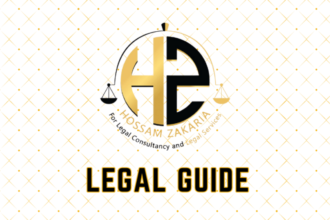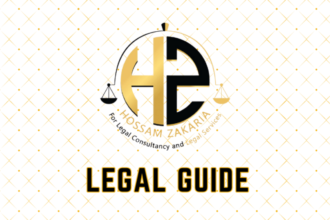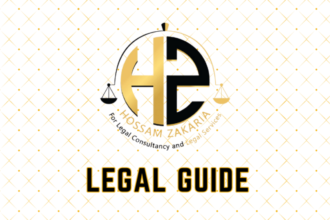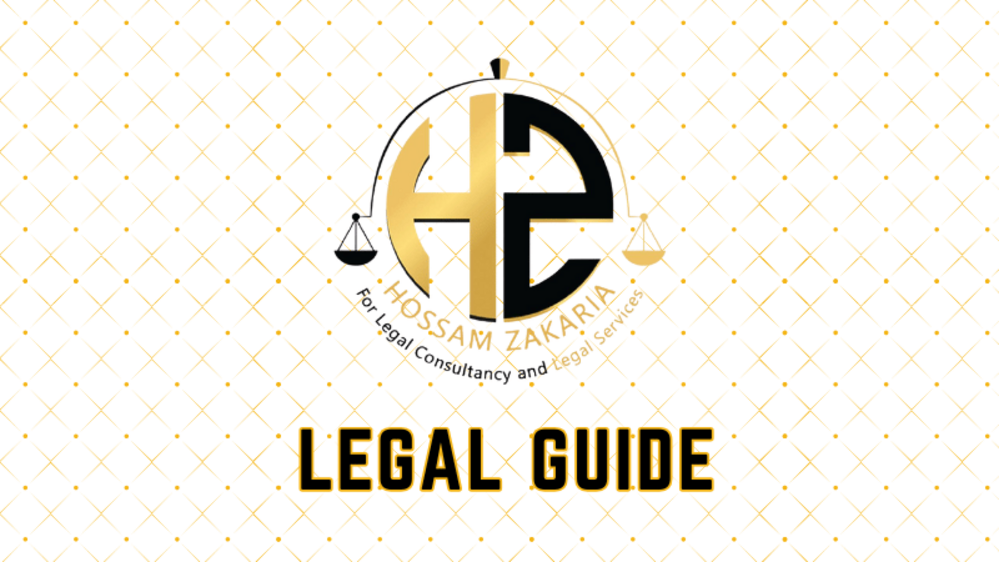Introduction
In 2025, arbitration stands at the forefront of alternative dispute resolution for cross-border business in the GCC, especially between the UAE and Saudi Arabia. As corporate ties deepen, legal professionals, executives, and HR managers are under mounting pressure to ensure robust dispute mitigation strategies—of which mastery of Saudi arbitration processes is paramount. Understanding the nuances of Saudi Arabia’s arbitration procedures is now more critical than ever for UAE-based businesses, legal practitioners, and multinational operations, given recent legislative reforms and growing demand for commercially pragmatic solutions.
The sophistication and efficiency of Saudi arbitration systems have evolved considerably, aligning more closely with international best practices amid ambitious reforms, particularly the Saudi Arbitration Law (Royal Decree No. M/34 of 2012) and rules of the Saudi Center for Commercial Arbitration (SCCA). These reforms offer new opportunities—and introduce new risks—for UAE stakeholders engaged in Saudi transactions. In this comprehensive legal guide, we dissect the framework, lifecycle, key provisions, and practical implications of Saudi arbitration, highlighting relevance to UAE interests and suggesting compliance strategies to navigate this evolving landscape.
Table of Contents
- Legal Framework Governing Arbitration in Saudi Arabia
- Core Provisions of Saudi Arbitration Law
- Navigating the Arbitration Process in Saudi Arabia
- Interplay Between UAE and Saudi Arbitration Regimes
- Case Studies and Practical Scenarios
- Risks, Pitfalls and Compliance Strategies
- Future Trends and Best Practices
- Conclusion: Leading the Region in Legal Preparedness
Legal Framework Governing Arbitration in Saudi Arabia
Evolution of Arbitration Law in KSA
Saudi Arabia’s arbitration regime has undergone a major transformation, especially following the enactment of the Arbitration Law (Royal Decree No. M/34) in 2012, which repealed the previous 1983 law. The 2012 statute is modeled closely on the UNCITRAL Model Law, signaling the Kingdom’s intent to increase alignment with global arbitration standards. Complementing this, Ministerial Decision No. 5418/1/1433 sets forth implementing regulations, while the SCCA (Saudi Center for Commercial Arbitration), established in 2014, delivers an institutionally administered platform that raises the regional bar for commercial arbitration.
Key Statutes and Regulations
| Legal Instrument | Purpose | Date of Effect |
|---|---|---|
| Arbitration Law (Royal Decree M/34) | Main statute governing arbitration procedures | 2012 |
| Implementing Regulations (Ministerial Decision No. 5418/1/1433) | Provides detailed procedural guidance | 2012 |
| SCCA Rules | Institutional arbitration framework | 2014 & 2018 updates |
| Enforcement Law (Royal Decree M/53) | Recognition and enforcement of foreign and domestic awards | 2012 |
Alignment with International Practice
A pivotal development includes Saudi Arabia’s accession to the New York Convention (1958) in 1994, ensuring enforceability of foreign arbitral awards. This alignment affords UAE companies in Saudi business expanded confidence in enforcing awards across borders.
Core Provisions of Saudi Arbitration Law
Scope and Applicability
Under Article 2 of the Arbitration Law, parties are free to submit all ‘determinable civil and commercial disputes’ to arbitration except for matters not eligible for compromise under Sharia (e.g., criminal, family, or certain administrative matters).
Arbitration Agreement Essentials
Article 9 mandates a written arbitration agreement, whether embedded in contracts or as a standalone document. To be enforceable, it must clearly identify the dispute, the parties, and reference applicable rules or institutions.
Appointment of Arbitrators
Parties may freely appoint arbitrators; however, Article 14 requires that arbitrators be of full legal capacity and good conduct. Institutional rules—such as those of the SCCA—provide more granularity, including conflict of interest declarations and independence standards.
Seat of Arbitration and Language
Article 28 permits parties to select the seat and language of proceedings. If not specified, Riyadh and Arabic are the defaults, but international parties (including UAE) often contractually opt for English.
Comparative Table: Saudi Arbitration Law vs. Old Regime
| Aspect | Pre-2012 Law | Post-2012 Arbitration Law |
|---|---|---|
| Model Law Basis | No | Based on UNCITRAL Model Law |
| Arbitrator Appointment | Government approval often required | Party autonomy prioritized |
| International Award Recognition | Limited mechanisms | Full NY Convention compliance |
| Procedural Flexibility | Strict, limited discretion | Significant procedural autonomy |
Visual placement suggestion: A side-by-side infographic highlighting these key changes can aid business leaders in quickly grasping major evolutions.
Navigating the Arbitration Process in Saudi Arabia
Life Cycle of a Saudi Arbitration
- Arbitration Clause/Agreement Formation: Clear, drafted in accordance with Article 9; often vetted by UAE counsel for sharia compliance.
- Commencement of Proceedings: Notice served; statement of claim filed as per agreement or SCCA Rules.
- Constitution of Tribunal: Arbitrators appointed by mutual agreement or, failing which, by SCCA or courts.
- Preliminary Hearings and Substantive Proceedings: Timeline for evidence, witness statements, and submissions.
- Deliberation and Award: Written award rendered; grounds and form dictated by Articles 42-43.
- Recognition and Enforcement: Application to Enforcement Courts as per Royal Decree M/53.
Visual placement suggestion: Flow diagram outlining these steps for ease of reference among in-house counsel and executives.
Institutional Advantages: The Role of SCCA
The SCCA acts as the leading arbitration institution in the Kingdom, offering:
- Standardized fast-track rules for smaller disputes or urgent relief
- Arbitrator panels with regional and international expertise
- Bilingual proceedings (Arabic/English)
- Procedures for interim measures akin to ‘emergency arbitrator’ regimes
Practical Consultancy Insights for UAE Parties
- Always review arbitration clauses for sharia compliance and enforceability in Saudi courts
- Engage counsel early to appoint suitable arbitrators—local legal nuances matter
- For cross-border contracts, choose the SCCA to guarantee neutrality and procedural efficiency
- Explicitly set the seat and language in the contract to avoid jurisdictional disputes
Interplay Between UAE and Saudi Arbitration Regimes
Legal Crossroads: Enforcement and Reciprocity
Both UAE and Saudi Arabia are signatories to the New York Convention. Nevertheless, differences remain in practice. UAE’s Federal Arbitration Law (Federal Law No. 6 of 2018) offers flexibility, while KSA retains certain public policy and sharia compliance checks. For UAE businesses, this means:
- Arbitral awards rendered in the UAE are broadly enforceable in Saudi Arabia unless contravening public policy or sharia
- Explicit drafting and robust legal documentation are indispensable for cross-border enforceability
Table: UAE vs. Saudi Arbitration Laws (2025 Updates)
| Aspect | UAE (Federal Law No. 6/2018) | Saudi Arabia (Royal Decree M/34/2012) |
|---|---|---|
| Legal Basis | UNCITRAL Model Law-adapted | UNCITRAL Model Law-based |
| Sharia Requirement | Limited (mainly enforcement stage) | Mandatory at all stages |
| Interim Measures | Permitted; court support available | Permitted; more limited in scope |
| Language Choice | Agreed by parties, not defaulted | Arabic default, English possible with agreement |
| Enforcement Timelines | Usually under 60 days | Potentially longer; dependent on sharia review |
Visual placement suggestion: Compliance checklist for contract drafters managing UAE-KSA deals.
Case Example: Enforcing a Dubai Award in Saudi Arabia
Consider a UAE energy services company awarded damages by a Dubai arbitral tribunal against a Saudi counterpart. Successful enforcement in KSA hinges on the award’s procedural compliance with sharia and public policy. Early legal review by both UAE and Saudi advisors is recommended to avoid pitfalls at the recognition stage.
Case Studies and Practical Scenarios
Scenario 1: Successful Cross-Border Enforcement
A UAE-headquartered tech consortium enters into an IT infrastructure contract with a Saudi counterpart. The arbitration clause selects SCCA Rules and English language. When contractual breaches occur, arbitration is swiftly initiated in Riyadh, arbitrators appointed from both the SCCA panel and international experts. The final award is rendered in English and Arabic, and seamlessly enforced in Saudi and then reciprocally in the UAE.
Scenario 2: Pitfalls of Poor Drafting
An HR manager of a UAE logistics firm drafts a “standard” arbitration clause for contracts in KSA, omitting seat and language—and defaulting to a foreign institution not recognized in Saudi Arabia. On dispute, the Saudi courts challenge the clause’s validity and refuse enforcement, leading to protracted litigation.
Recommendations for In-House Legal Teams
- Always insist on express reference to a recognized Saudi (or neutral) arbitral institution
- Seek cross-jurisdictional legal review for compliance with both UAE and Saudi requirements
- Periodically update precedent agreements to reflect evolving legal standards (notably, the SCCA’s 2018 rule updates and UAE Federal Law No. 6/2018)
Risks, Pitfalls and Compliance Strategies
Non-Compliance Risks
- Inability to enforce arbitral awards or delayed recognition
- Costly parallel litigation if agreements are poorly drafted
- Exposure to public policy/sharia objections
- Potential reputational damage due to perceived legal uncertainty
Comprehensive Legal Compliance Checklist
| Checklist Item | Details | Best Practice |
|---|---|---|
| Arbitration Clause Drafting | Explicit, sharia-compliant, naming a recognized institution | Obtain multi-jurisdictional review |
| Arbitrator Selection | Locally and regionally experienced, independent | Leverage SCCA panel or legal directory |
| Seat and Language | Clearly stated in the agreement | Default to Riyadh and Arabic if uncertain |
| Interim Relief Mechanisms | Reflect contract-specific needs | Check SCCA provisions for emergency arbitrators |
| Enforcement Planning | Advance review for public policy and sharia conflicts | Pre-emptively address likely objections |
Mitigation Strategies
- Periodically train legal and HR staff on arbitration updates
- Embed compliance audits at the contract negotiation and contract renewal stage
- Engage external legal advisors with Saudi arbitration experience for high-stakes transactions
Future Trends and Best Practices
Emerging Developments
Saudi Arabia is committed to further liberalizing its arbitration regime. Recent proposals suggest increased adoption of digital hearings, greater transparency, and expedited procedures—aligning with UAE’s own innovations such as the Abu Dhabi Global Market Arbitration Centre. Saudi Vision 2030 also mandates more robust dispute resolution frameworks to attract FDI and international partners.
Best Practices for UAE Businesses
- Maintain current templates reflecting 2025 legal standards in both UAE and KSA
- Utilize arbitration clinics or joint working groups to resolve procedural issues pre-emptively
- Leverage technology (secure document portals, virtual hearings) in institutional arbitrations
- Monitor legal updates from UAE Ministry of Justice, SCCA, and the Federal Legal Gazette regularly
Visual placement suggestion: A forward-looking diagram on the future of arbitration in the GCC.
Conclusion: Leading the Region in Legal Preparedness
In the fast-evolving legal landscape of 2025, UAE businesses with Saudi exposure can unlock substantial value and minimize risk through strategic mastery of Saudi arbitration procedures. Robust, sharia-compliant arbitration agreements—drafted and reviewed by knowledgeable UAE and KSA counsel—remain essential. Failing to adapt to ongoing reforms not only jeopardizes enforceability but exposes organizations to cost, delay, and regulatory challenge.
Legal practitioners, in-house teams, and business leaders are invited to reassess their existing dispute resolution frameworks, update contractual templates, and embrace institution-based arbitration. By doing so, they will not only ensure legal compliance but also build a resilient, future-focused platform for cross-border commercial success in the GCC. Proactivity, continuous education, and professional alliance with experienced legal consultants comprise the core of best practice in the UAE-Saudi business corridor.



